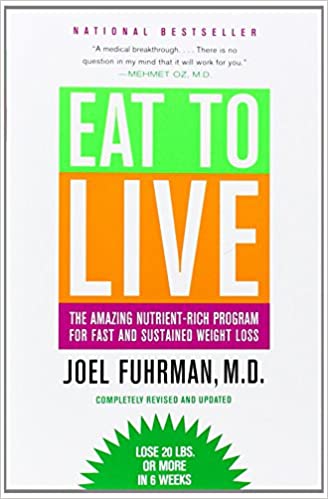Lord God, heavenly Father, we beseech Thee so to guide and direct us by Thy Holy Spirit, that we may not forget our sins and be filled with pride, but continue in daily repentance and renewal, seeking our comfort only in the blessed knowledge that Thou wilt be merciful unto us, forgive us our sins, and grant us eternal life; through Thy beloved Son, Jesus Christ, our Lord, who liveth and reigneth with Thee and the Holy Ghost, one true God, world without end. Amen.
The Righteousness of Faith
Background
The Age of Rationalism slowly strangled the concept of faith in the Holy Trinity, and that motivated the professors to change the meaning of the Scriptures, from the plainly worded revelation of God to very complicated and obscure theories that denied what God revealed. This is the current state of the denominations and the Church of Rome.
When Adam and Eve were expelled from the Garden of Eden, they were promised the Savior who would be wounded by Satan and yet would crush the head of Satan.
When Eve gave birth to a boy, she said literally in Hebrew - I have conceived a man, the Lord, Genesis 4:1. The Hebrew script clearly states this but the translators have always been wary. This clearly shows that Eve heard the Promise of salvation through Christ and believed her son fulfilled that Word.
Much later, God promised the impossible with Abraham, which is assumed to be a son and a great nation. As I have written before, no nation or empire has continued forever and had uncountable numbers, like the stars in the sky. This was repeated promised by God and was fulfilled in the line of Abraham and David, leading to the Son of David, Jesus Christ. This the one-sided Testament, with God offering Promises beyond the imagination of any person.
The Rationalists are offended by this Testament and want to replace it with their concept of covenant - two-sided. Therefore, if you want God to do something for you, you have to do something for God. Otherwise, He will not bless you - so their dogma teaches.
Lutheran rationalists do not like the term Testament, because they place human reason over and above the Word itself. That naturally turns the concept of revelation and faith upside-down. However, I was in the lawyer's office the other day and created a will or testament, made up of one-sided promises. This is the very language Paul used and we use too - the New Testament.
God gave the greatest Promise ever given to man, when He stated that Abraham would be a father of nations because of his faith in that Promise. Israel is very tiny and hardly an empire. Instead, we have the result of that Promise, millions of believers who trace their line through Jesus back to David and to Abraham's faith.
Abraham believed in the Promise of a Savior, and it was counted as righteousness (forgiveness of sin).
 |
| Most people miss the connection between the Smurfs and their boss - Father Abraham. |
KJV Luke 18:9 And he spake this parable unto certain which trusted in themselves that they were righteous, and despised others:
Notice that the parable before this has another perspective, and they go together.
KJV Luke 18 And he spake a parable unto them to this end, that men ought always to pray, and not to faint;
2 Saying, There was in a city a judge, which feared not God, neither regarded man: 3 And there was a widow in that city; and she came unto him, saying, Avenge me of mine adversary.
Our ideas and attitudes are not the same as God's, so humility is the correct response to needs and problems. The parable for today is not about a given class of people in those days, but examples of two extremes. The Pharisees were expected to be perfect in every way, so they had a concept of righteousness based upon their works. Paul's writing and personality reflected that, though he also corrected himself - "not I, but Christ within me."
I encounter this works-righteousness all the time in dealing with those students who are raised that way.
One wrote, "God is not going to give me anything if I do not give to Him."
Another one said, "We go over the covenant every Sunday. We have to do our part. That is central to every worship service."
This is clearly dealing with trusting in our own righteousness, not the righteousness of God. The Bible teaches:
- God
- Righteousness
- Faith
- Grace
The righteousness of God means faith in Jesus Christ, our Savior, and faith in our Good Shepherd gives us access to God's grace.
10 Two men went up into the temple to pray; the one a Pharisee, and the other a publican. 11 The Pharisee stood and prayed thus with himself, God, I thank thee, that I am not as other men are, extortioners, unjust, adulterers, or even as this publican. 12 I fast twice in the week, I give tithes of all that I possess.
This approach to God is certainly vivid enough to make anyone smile at the fake religion, which is the religion of the world, not God. He says "I" four times and has a long list of what he is not.
When I laughed about the religion of recycling, I was scolded by a younger in-law. I said, "I was making compost before you knew what it was." Her compost was just a trash-heap. My mother said the same thing to me when I discovered composting, as if she never heard the word. I was given detailed descriptions of where it was and how I was so blissfully unaware of it.
The point of this Pharisee's speech is the Pharisee himself. The other people are all evil and he is pure. That comes from a world-wide attitude of our own perfection and the sinfulness of everyone else.
As Luther said, the point of the Pharisee's prayer is that he is truly a good person, but also that he gives himself credit for this righteousness.
America the Pietist Cult
Our country was mostly settled by Pietists, who had a code they followed in various ways. Obeying that code was called sanctification and distinguished them from the others.
One pastor told me and a group how pure he was, because every one of his 105 family members belonged to the same Lutheran sect. I was going to add, "And they are all Pharisees like you" but it seemed to be a waste of breath. His numbers proved his status.
This topic is good for hours of talk and many books to read.
13 And the publican, standing afar off, would not lift up so much as his eyes unto heaven, but smote upon his breast, saying, God be merciful to me a sinner. 14 I tell you, this man went down to his house justified rather than the other: for every one that exalteth himself shall be abased; and he that humbleth himself shall be exalted.
The tax collector was hated for two reasons. One was the method of tax farming which continued into the modern era - collecting taxes and a bonus for the collectors extracted on top of that. The other reason for hatred was the fact of this money going to the Roman Empire to keep soldiers there and their country "at peace." The tax collectors were symbols of oppression and pagan Roman religion.
The tax collector was not proud of his lofty high-paying position, but humble before God. He asked for mercy from God because he was a sinner.
Jesus specified that this meant the tax collector was justified by faith - unlike the Pharisee who relied on his works. So this one episode encapsulates the essential teaching of the Bible - Old and New Testaments.
- God
- Righteousness
- Faith
- Grace
That is distilled by those four words above. God is all-powerful and all-merciful. His power is chiefly known through His mercy and forgiveness toward all who believe in Him.
We have no righteousness on our own because we are inherently sinful. Instead of praying to ourselves and about our great qualities, we pray to God to help us in all our troubles, fears, and sins.
There is no true prayer apart from prayer in the Name of Jesus Christ. That requires humility and faith in Him, our Good Shepherd.
I was thinking about people being awed by technological advances, and medical miracles. But many stop at one miracle or another, because the Rationalists have told them an alternative and doubt has crept in.
We have to believe as children instead of doubting as professors. That too requires humility, because the Word judges us - we cannot and should not judge the Word.
As I escaped the rationalism of college and seminary, I found clergy being embarrassed by hearing the Bible taken as it is, without compromise and doubt. That often led to name-calling and the peak of Pietism - total shunning. Because Pietists emphasized their works instead of faith in Christ, they quickly turned "no dancing" of the past into 37 genders (Walmart School System).
The President of a small, Christian college painted me as a liberal while he attended church at First Methodist! - which is the very foundation of America's switch to hedonism and denying the Scriptures.
This parable is short and powerful, a constant reminder of Jesus' own commendation. Many times, Jesus singled out the exceptional one who trusted in Him and undercut the proud and mighty who wanted to get rid of Him.
A humble faith helps us see what marvels God has provided for us, starting with salvation through His Son and all the blessings that come with that.






































